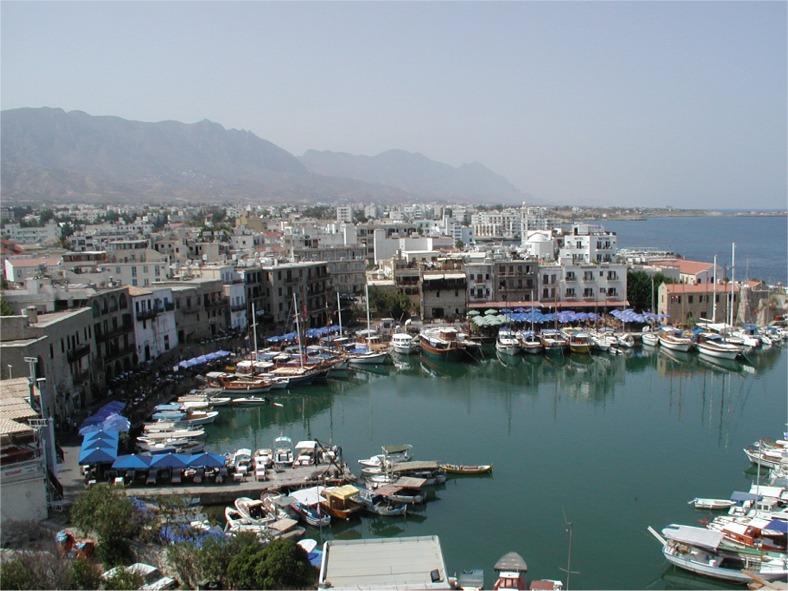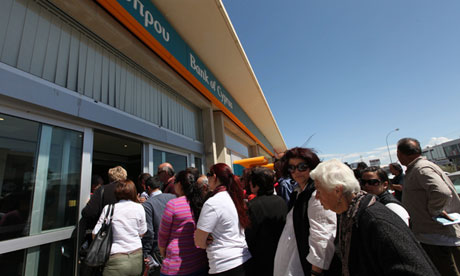I am not an economist, but I do know that in today’s world one cannot live without money.
As I follow the Cyprus Banking story — Bail-in , Bail-out (also known as theft of customer’s funds) — front and center on news around the world, I flash back to when I lived in Cyprus from 1971 to July 1974, before the coup and the war.
I lived in Kyrenia, a northern coastal village where colorful fishing boats bobbed in the azure blue Mediterranean bay. Known as the jewel in the crown of the island of Cyprus, it seemed the perfect paradise as I walked most days down the cobblestone roads to a local bakery, a market, the beach, or to meet friends for lunch in the old harbor.

On 15 July 1974 my life in paradise was shattered by a military coup d’état to overthrow the sitting president, Archbishop Makarios. Stuck in Nicosia, near the airport, in the middle of the chaos with tanks firing around me, I sought shelter with friends in their apartment. A curfew was in place, so I couldn’t return to my home in Kyrenia until the curfew was lifted on the 17th for a few hours, so that people could shop for food and supplies. Escorted by a friend with the UN, I drove back to my home in Kyrenia.
Banks were still closed. And in 1974, ATMs didn’t exist for people to rush to and form long queues to drain the machine dry. No way for anyone to take money out, until the government allowed the banks to reopen. I listened along with other shocked people as the radio reported that the Ministry of Finance announced that Cyprus’ banks would remain shut to give regulators time to guard against a run on deposits. Deposits? Surely they meant to say a run on withdrawals.

When banks finally opened their doors for business on the 18th, I joined others in a long line outside the bank to get my money out. I drained my account knowing my paradise was coming to an end. I filled the car tank with gas, paid a neighbor to look after my cat, indefinitely, gave her money to purchase cat food for six months, and helped friends financially who didn’t get their cash out.
On 20 July 1974, Turkey invaded and all hell broke loose as we dodged bullets and bombs to survive the war (avoiding becoming what is now called ‘collateral damage’ — in other words, dead.)
On 23 July, we were rescued and airlifted off the island.
Cyprus was an awakening for me on many levels. I lost everything I owned, escaped with the clothes on my back, and felt grateful to be alive. Others weren’t so lucky.
Cyprus also taught me that doomsday can happen anywhere, at any time — a natural disaster, a financial disaster, the loss of a home. The important thing is to be aware and plan, so that your assets don’t all sit in one basket under one government.
No wonder the people of Cyprus are frustrated, furious. Governments no longer work for the people, they work for the banks.
